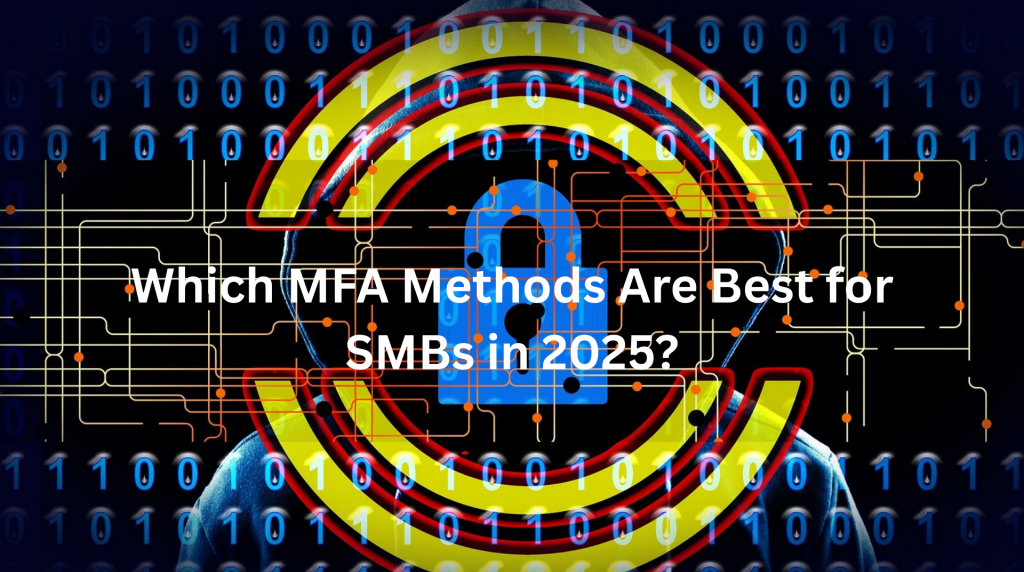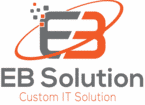Cyber threats are evolving increasingly. Unfortunately, SMBs are often their primary targets. Aside from a compromised password, there are also other methods like password spraying and other brute-force methods being used by threat actors. All of which may very well have a devastating financial and legal impact. Multi-factor authentication (MFA) adds an extra shield of protection. However, with all the various alternatives to choose from, business owners ask: Which MFA methods are best for SMBs in 2025?

Which MFA Methods Are Best for SMBs in 2025
Here is a Multi-Factor Authentication comparison that can provide good guidance to owners and IT managers of SMBs seeking to improve their security profiles. This is essential not just for MFA compliance and, more importantly, added security to your network system.
What SMB MFA Adoption is a Must?
Passwords themselves are not sufficient anymore. Weak or reused credentials can easily be used by cybercriminals. MFA provides an additional layer of security since users will be asked to authenticate themselves using multiple factors. For SMBs in financial, legal, or other regulated fields, it also MFA compliance with industry regulations. In addition to regulations, SMB MFA adoption safeguards brand reputation and earns the trust of customers. The bottom line is that MFA is not an option but a business requirement.
Comparing MFA Methods: Hardware Tokens vs SMS vs Apps
Your company’s size, budget, and risk tolerance determine which MFA option fits best. In addition to a strong password, these MFAs are the top popular ones. This is the tale of the tape among hardware tokens vs SMS vs apps. So, which MFA methods are best for SMBs in 2025?
Hardware Tokens
These are physical hardware tokens that produce time-based authentication codes. Advantages of this include better safety and anti-phishing and it does not need mobile networks or connection to work. However, it has to be physically managed and distributed and needs replacement for the loss of equipment. Despite these disadvantages, this method proves best for SMBs that have strict compliance demands, e.g., financial, or legal institutions.
SMS-Based MFA
SMS-based SMB MFA adoption, on the other hand, sends single-use codes straight to the user’s phone. This means that it is easier to both install and operate. Additionally, it does not require additional apps and other devices. On the flip side, however, is that it is at risk for SIM swapping and phishing hence it is less reliable than other methods. This works best for SMBs that require a low-cost and simple product but have other security tools in place.
Authenticator Apps
Apps like Microsoft Authenticator or Google Authenticator generate temporary access codes. Pros of this method include better SMS security plus it is simple and inexpensive to use. However, it needs employee training and their smartphones. Plus, just like SMB-based MFA, it is also vulnerable to certain phishing tricks. Despite this, it is the best option for most SMBs as it is user-friendly, affordable, and provides decent security, comparatively speaking.
Which MFA methods are best for SMBs in 2025?
The most promising way to implement MFA in SMBs is, in many instances, a combination of the following:
- Provide authenticator apps to regular employees.
- Use hardware tokens with privileged accounts or regulated roles of high sensitivity.
- Do not use SMS text to authenticate alone, but as a form of backup only.
This approach balances convenience, cost, and security needs. It is also in line with MFA compliance standards, and it minimizes account takeovers.
Key Factors When Selecting MFA Solutions
In deciding on the MFA methods to be used, consider a lot of factors. For those in the legal and financial SMBs, for example, they often have to meet intense compliance requirements. Hence, SMB MFA adoption should be able to fulfil these requirements.
- Convenience of Use: An effective MFA system should be simple for employees to use.
- Integration with Other Systems: Any MFA you select should be able to integrate with existing applications and identity systems.
- Scalability: Choose an MFA platform with the capacity to expand as your organization grows.
MFA Compliance and Business Benefits
Implementing MFA enhances security while also supporting overall business growth. By following MFA compliance, SMBs can demonstrate the intent that they want to keep client data secure, hence increasing trust with both customers and associates. SMB MFA adoption also allows avoiding losses incurred by malware, file fines, and downtimes monetarily. It is a visible investment.
EB Solution and MFA Compliance
The implementation of MFA can seem quite intimidating, especially to a small organization that lacks vast IT capacity. Here in EB Solution, our team of expert IT and cybersecurity professionals are able to provide specialized support and advice. This is based on the specific needs of each SMBs with MFA. They can also help in the assessment of risks, application of appropriate MFA methods, and even train the personnel to ensure the process is not difficult. With EB Solution, your business’ MFA strategy will be efficient, compliant, and secure in the future with the help of professionals.
So, should you ask: Which MFA strategies will work best in 2025 for companies that are SMB? Although this is determined by your risk profile/compliance requirements, the best mix is a combination of applications and hardware tokens.
Stay ahead of cybercriminals and secure your system by getting professional help.
